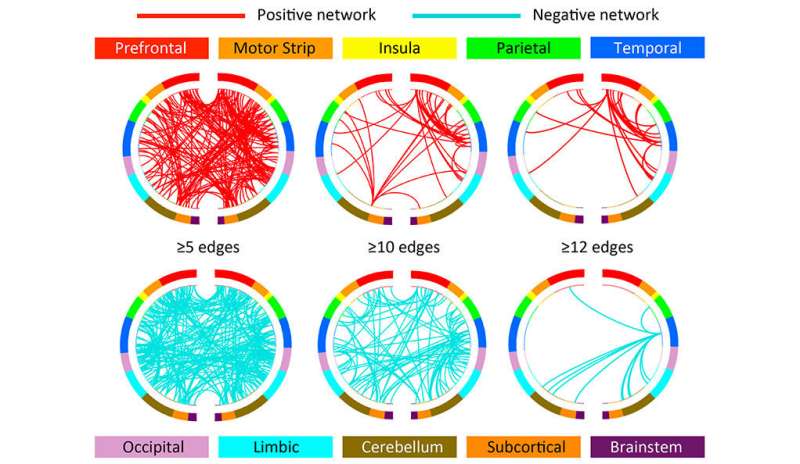Neural fingerprints ID those likely to abstain from cocaine

By measuring the strength of connections between different brain networks, Yale researchers successfully predicted who would abstain from cocaine during treatment, they report Jan. 4 in the American Journal of Psychiatry.
The machine-learning technique developed at Yale—called connectome-based predictive modeling (CPM) or "neural fingerprinting"—successfully identified a complex brain network that predicted future abstinence from cocaine during a 12-week treatment program.
"We don't have a good predictor of who will benefit from a course of treatment," said Sarah Yip, assistant professor of psychiatry and lead author of the study. "Using this data, we hope to one day be able to tailor treatments to individuals."
Research led by Yip and Kathleen Carroll, the Albert E. Kent Professor of Psychiatry, analyzed fMRI data from 53 individuals scanned before undergoing treatment for cocaine dependence. They measured the strength of connections between a variety of brain networks of those who successfully abstained from cocaine use and those who did not. Using these neural fingerprints, they then analyzed neuroimaging data from a second group of 45 individuals undergoing treatment, and found that they could correctly predict treatment outcomes with 70 percent accuracy.
Yip said that measurements of the strength of connections between different brain regions and their correlation to treatment success might also guide scientists in the development of new drugs to aid treatment efforts.
More information: Sarah W. Yip et al. Connectome-Based Prediction of Cocaine Abstinence, American Journal of Psychiatry (2019). DOI: 10.1176/appi.ajp.2018.17101147
















